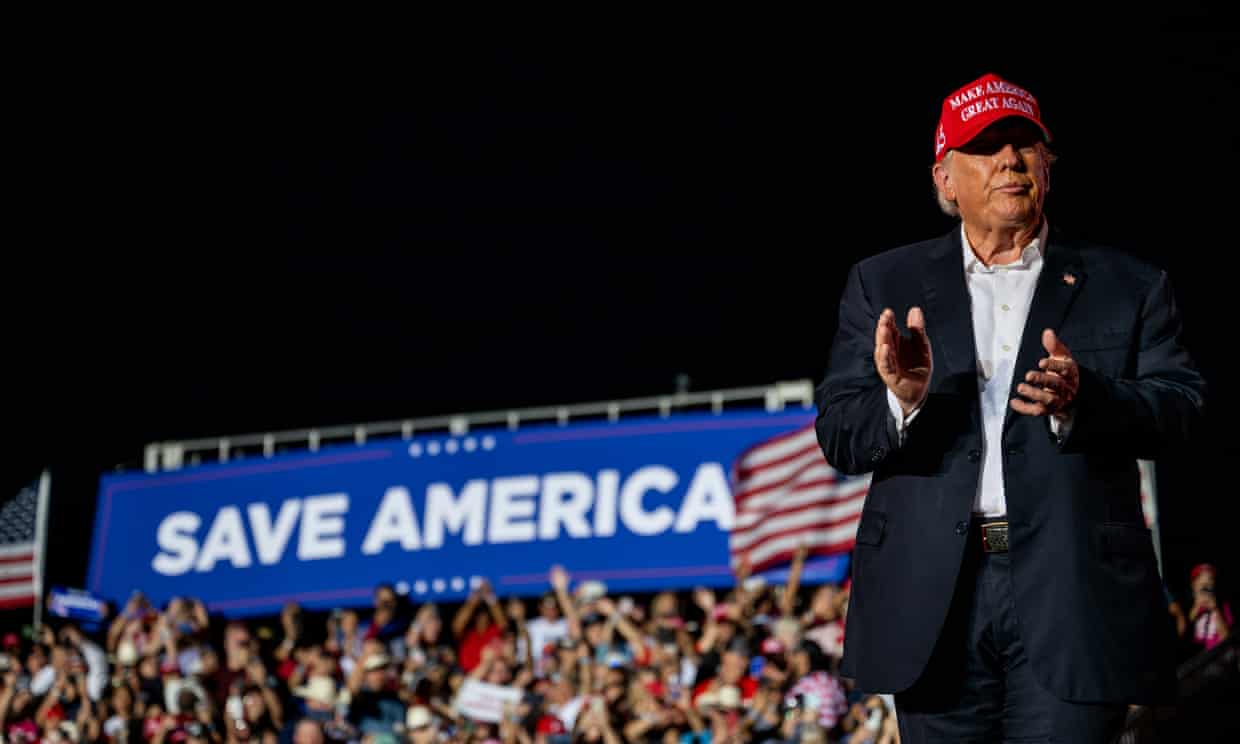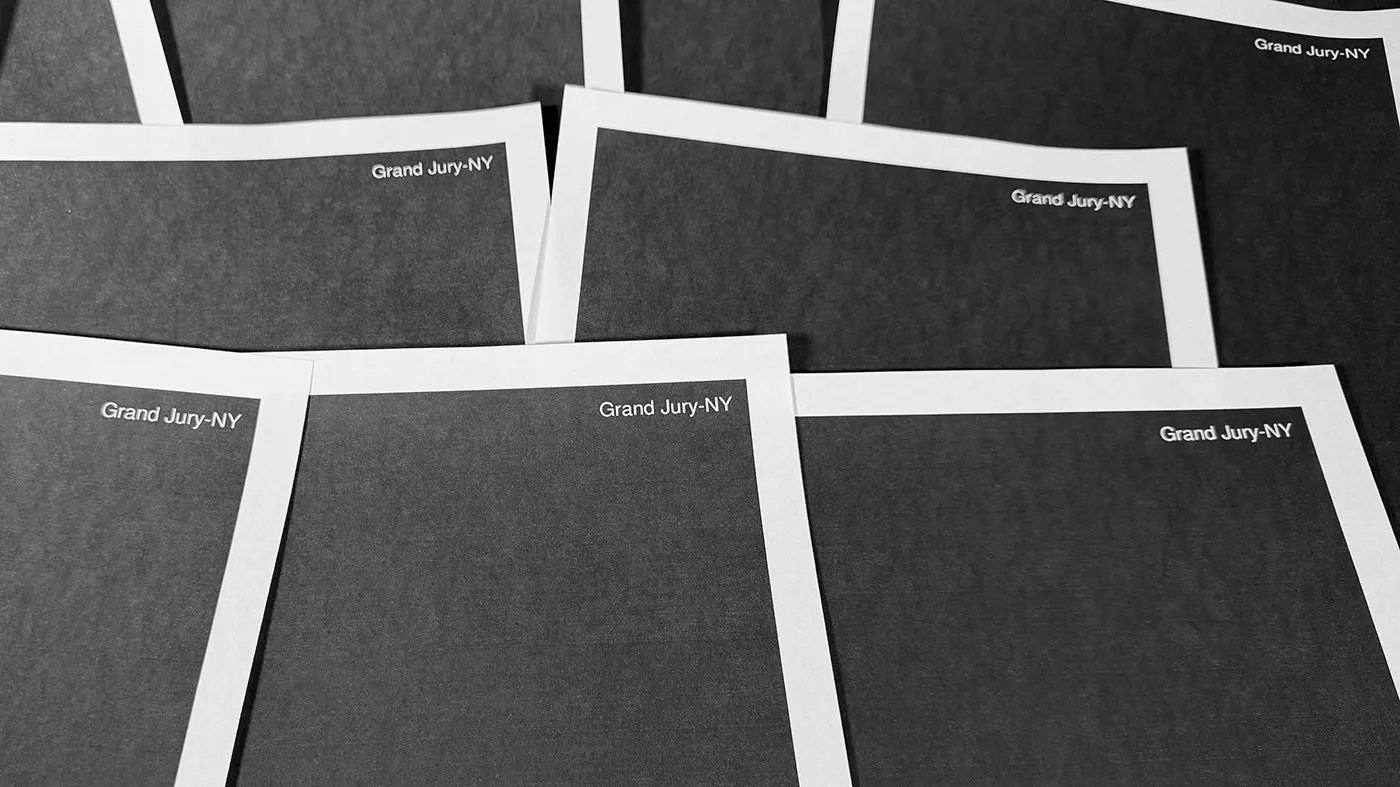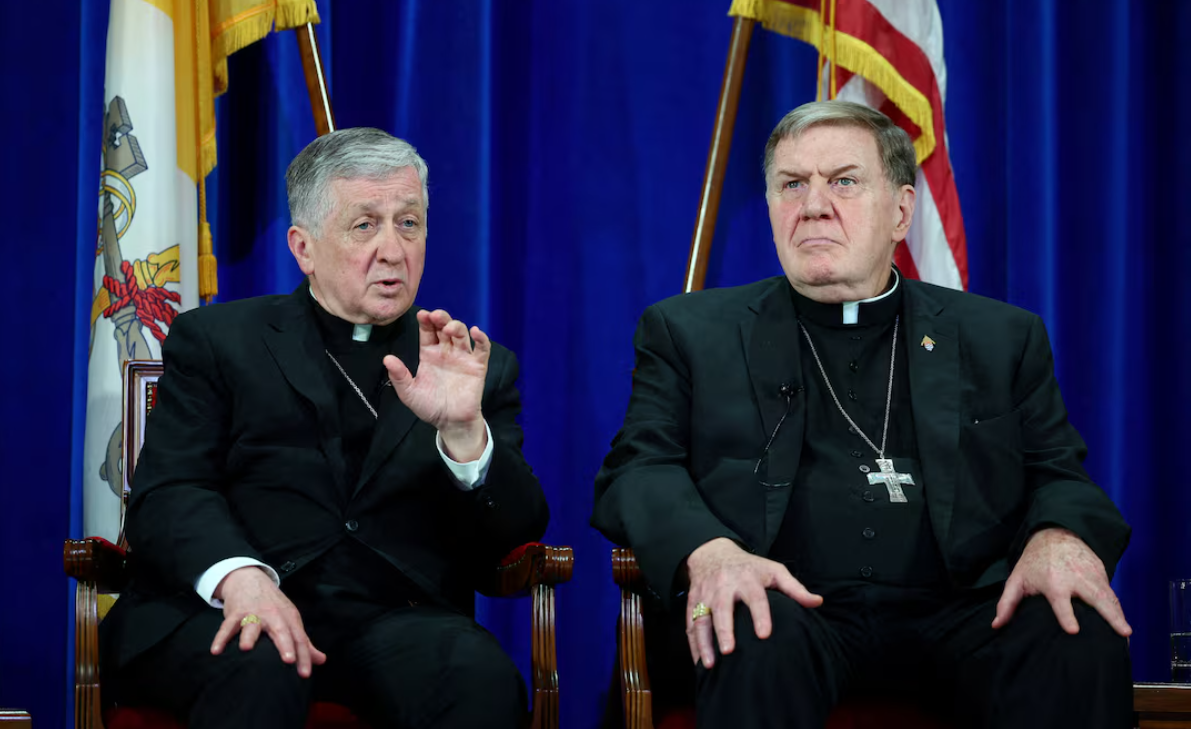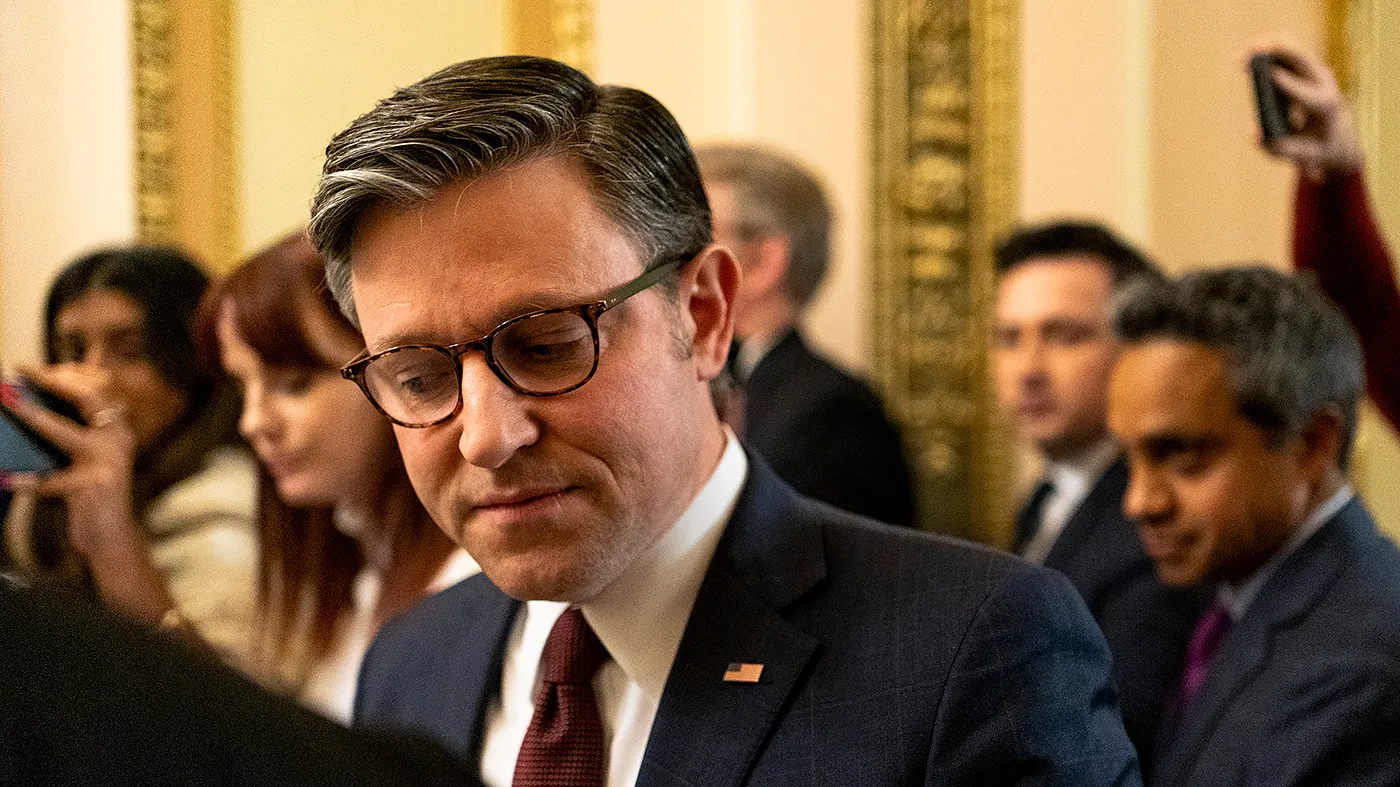Some senators want to use a federal law to charge those who continue to picket — even though it could be on shaky constitutional grounds.
CHEVY CHASE, Md. — As the group of about a dozen protesters rounded the corner and approached Justice Brett Kavanaugh’s house on a leafy suburban street, the two deputy U.S. marshals on guard watched unmoved from their perch in the driveway.
One whispered into his radio. The other took a sip from a coffee cup.
The protesters, who had gathered on the evening of May 4, walked past the house singing “I went down to the rich man’s house and took back what he stole from me.” One was holding a sign reading “For sale: one corrupt SCOTUS,” using an acronym for Supreme Court of the United States. Another sign said, “expand the court.” The protesters, mostly women, were in good humor, laughing among themselves as they marched.
It wasn’t clear if anyone was home and the street — in the affluent community of Chevy Chase, which is only miles from the Washington city limits but during rush hour can mean an hour’s commute to the Supreme Court — was otherwise quiet. Two children with tennis rackets knocked a ball back and forth in a nearby front yard. One house opposite had a sign outside reading “Chevy Chasers for Choice.”
The deputy U.S. marshals watched but said nothing as the group passed. The protesters kept to the sidewalk and did not stop moving. After walking farther down the street, they circled back, passed by Kavanaugh’s house again, and then moved on to their next destination: the nearby home of Chief Justice John Roberts.
The relatively orderly scene, with no sign of any local police presence, stands in stark contrast to the portrait painted by Republicans and conservative activists. They have called for protesters to be prosecuted under federal law ever since there were larger and angrier demonstrations outside Supreme Court justices’ homes last year in the days after the bombshell ruling that ended the constitutional right to abortion.
The law in question prohibits the “picketing and parading” of federal judges and court facilities with the intent of interfering or obstructing the administration of justice or with the intent of influencing a judge.
“The entire country has seen hundreds of protesters outside the homes of Supreme Court justices night after night after night. You turn on your TV and you see violations of this criminal statute over and over and over again,” Sen. Ted Cruz, a Texas Republian, said at a Senate hearing last month.
The Justice Department has not brought any charges, with the recent disclosure of internal U.S. Marshals Service training materials suggesting that concerns have been raised internally that the law could violate the Constitution’s First Amendment protection of free speech if applied too broadly.
There’s even a chance that if the statute was enforced it could prompt a legal challenge that could end up at the Supreme Court itself. If the case in question involved a member of the court, that justice would likely have to step aside from considering it.
‘Red Scare’ law
The law, enacted in 1950, was part of broader legislation that Congress passed called the Internal Security Act, which targeted communist groups during a period known as the Red Scare. The legislation was enacted over the veto of President Harry Truman.
In the wake of the leak to Politico that revealed that the court was planning to overturn the landmark abortion rights decision Roe v. Wade, several prominent Republicans, including Sen. Tom Cotton, an Arkansas Republican, quickly called for the prosecution of protesters who gathered outside the homes of conservative justices in Maryland and Virginia.
One man, Nicholas Roske, was charged with attempted murder after he was arrested by local police in Maryland near Kavanaugh’s home while in possession of a handgun after flying cross-country. Regular protesters said he was not part of any of their groups. Roske himself called police and surrendered after he saw the law enforcement presence outside Kavanaugh’s home.
At the time, Cotton said protesters should be “arrested on the spot” and could make free speech arguments as a defense if prosecuted.
Republicans recently introduced legislation aimed at increasing the penalty for violating the “picketing and parading” law to five years in prison. They have brought up the issue again as scrutiny on the ethics of justices, in particular conservative Clarence Thomas, has increased in light of reports by ProPublica and others.
At a Senate hearing in March at which Attorney General Merrick Garland testified about budget issues, Sen. Katie Britt, an Alabama Republican, displayed Marshals Service presentation slides that appeared to be used for the training of deputies assigned to protect the homes of Supreme Court justices after the leak of the abortion ruling.
The Marshals Services is a bureau within the Justice Department, meaning Garland oversees it. Garland himself ordered the marshals service to protect the justices in their homes soon after the Politico leak. Traditionally, the Supreme Court’s own police department takes on that role.
The slides emphasize that the primary role of the deputies was to protect the justices, not to undertake criminal enforcement actions. As such, the deputies were directed not to interfere with “lawful, First Amendment protected activity.”
The training materials specifically mention the picketing and parading law, with one slide saying that the statute’s broad language “directly implicates” acts protected by the First Amendment. As such, the slide indicated that the law should be interpreted to cover only “criminal threats and intimidation.”
The same slide also said that arrests of protesters would be “a last resort to prevent physical harm to the justices.”
At the hearing, Britt probed Garland about the slides, saying it appears the deputies were “actively discouraged” from arresting protesters and suggested that the materials contradicted previous comments from Garland that deputies had the power to make arrests.
Garland said he was not aware of the training materials, adding that his position had always been that the deputies’ “first and principle job is to protect the lives and property of the members of the court.”‘
He also said that he is hoping to hand back the job of protecting justices from the Marshals Service to the Supreme Court police.
It remains unclear if the language contained in the slides reflects the Justice Department’s official legal position on whether the picketing and parading law raises constitutional issues.
A Justice Department spokesman declined to comment.
In a statement, Ronald Davis, director of the Marshals Service, said Garland made it clear that the top priority was to protect justices but that deputies also “have the full authority to enforce any federal statute, including 1507.”
Davis said he ordered that the deputies be given training that “places the safety of the justices and their families first.”
Free speech concerns
The Supreme Court in a 1965 case called Cox v. Louisiana said a similar state law from Louisiana did not violate the First Amendment, so in theory “residential picketing aimed at influencing decisions is indeed prohibited,” said Eugene Volokh, an expert on the First Amendment at UCLA School of Law.
But, he added, it would be reasonable to argue that the law is an unconstitutional content-based ban on speech because of its focus on influencing judges. That raises different concerns than a law that prevents all picketing, regardless of the content of the speech. The Supreme Court upheld such a law in a 1988 case called Frisby v. Schultz.
Thomas Berry, a scholar at the libertarian Cato Institute, said that it is unlikely the current Supreme Court would reach the same conclusion the court reached in the 1965 Louisiana case and would potentially overturn the earlier ruling if the issue came before it.
“I think the modern court would be much more skeptical of the justifications for this speech restriction than was the court in 1965,” he said.
Among other things, he said, the term “influencing” could be used to refer to all kinds of protected speech, including commentary in the media urging the court to take a certain position.
“If an op-ed urging the court to rule a certain way is protected, it is hard to see how reading the same op-ed out loud on a public sidewalk near a courthouse or home could be criminalized,” Berry said.
Referring to the protests last year, Brian Hauss, a lawyer with the American Civil Liberties Union who litigates free speech cases, said “a great deal of that protest activity” would be protected under the First Amendment. Any prosecution on those grounds could trigger a challenge to the picketing and parading law, he said.
“If the government tried to apply it to those kinds of roving protests there would have been very troubling First Amendment issues,” Hauss said.
Britt, meanwhile, believes the law is constitutional and points to Supreme Court precedent, said spokesman Sean Ross.
“The rule of law cannot be supplanted by mob rule,” Ross said. Cotton and Cruz did not respond to requests seeking comment on whether the law is legally sound.
‘The whole world hates you’
In Chevy Chase, protesters say they have had primarily positive interactions with the local Montgomery County Police Department. Last summer, tensions were high when the police told protesters that they could be in violation of a noise ordinance.
That came around the time that the Supreme Court asked local officials in Maryland and Virginia to crack down on protesters, citing local, not federal laws.
Since then there have been no issues, the protesters say, although the number of people participating and the frequency have tailed off.
A Montgomery County police spokeswoman said no one has been arrested. “My understanding is that the protesters have been following the laws,” she said.
Roberts and Kavanaugh did not respond to requests for comment.
On the threat of prosecution under the federal law, the protesters say it was never their intent to influence the justices, because they did not believe it was possible to do so.
“We weren’t trying to intimidate or persuade them to change their minds because we knew that wasn’t going to happen,” said regular protester Nadine Seiler.
At the recent protest, the group followed the same drill outside Roberts’ house, pacing back and forth in front of two deputy marshals standing sternly in the driveway. One house across the street displayed a gay pride flag.
“History will not be kind to your court, John Roberts,” one protester shouted.
After circling around a couple of times, the group headed back to base. Passing Kavanaugh’s house again, it appeared the deputies there had called in reinforcements. There were now four of them standing in front of the house.
A boy was playing basketball in the street as the protesters chanted “the whole world hates you” at Kavanaugh’s house. Then they turned the corner and were gone.
Free speech or federal crime? Protesters are still marching outside conservative Supreme Court justices’ homes




